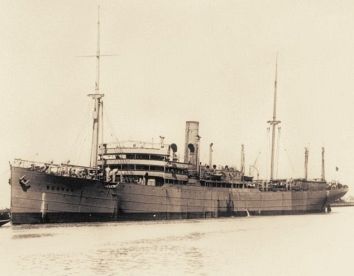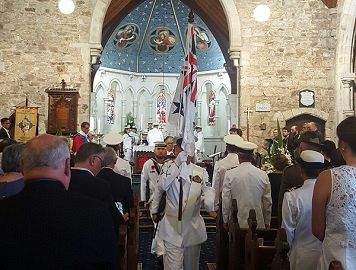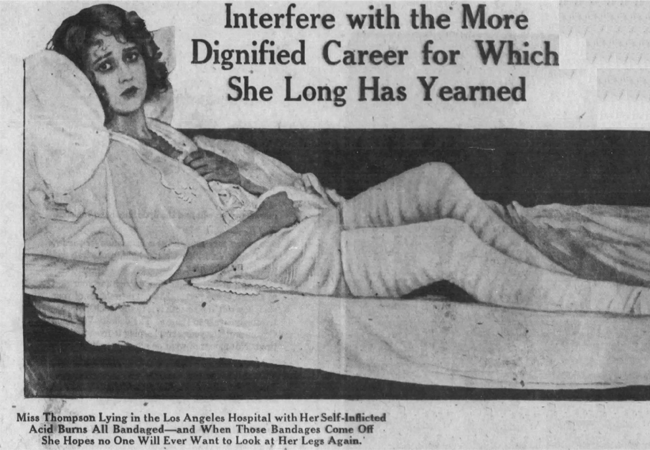The 11th hour of the 11th day of the 11th month marks the moment the guns fell silent on the Western Front after the bloodshed of World War I. Over the past century, this moment has been adopted across the globe as a time to remember those who served and sacrificed in all wars and conflicts, writes history editor Dr Glenn Davies.
November is always a time of remembering. The Feast of Saints is held at the beginning of November and is now widely observed across the world to remember those recognised as today’s saints. This is followed by All Souls, that encourages the remembering of those that have gone before us.
A few days later on 5 November is Guy Fawkes Night, which remembers the survival of James I from Guy Fawkes’ assassination plot when he attempted to blow up the House of Lords.
And of course, Remembrance Day, held each year on 11 November for just over a century, is when Australians “remember to remember” and pause for one minute of silence at 11 A.M. to honour those who served.
More than 2,000 Australian nurses served in the Australian Army Nursing Service during World War I. They may have been motivated by adventure or by loyalty to Australia and the British Empire — or held hopes that enlisting would take them closer to loved ones serving overseas.
Nurses worked in hospitals, on ships near battlefields inaccessible by land, on trains and in casualty clearing stations (makeshift wards close to the frontline). Nurses had to be aged between 25 and 40 and unmarried. Twenty-five Australian nurses died during the war and eight were awarded the Military Medal for bravery. One of these nurses was Sister Rosa O’Kane from Charters Towers, north Queensland.
Sister Rosa O'Kane, granddaughter of infamous nineteenth-Century newspaper editor Thadeus O'Kane, was born and raised in Charters Towers in the 1890s and into the new century. She trained as a nurse in Townsville and became a matron in western Queensland hospitals before World War I.
Rosa signed up to train as a battlefield nurse in 1915 and was called up in 1917. On 11 November 1918, she was bound for Europe on the SS Wyreema to serve as part of the Australian Army Nursing Service when the Armistice was declared. Following her ship’s return to Perth, she volunteered to tend to World War I servicemen suffering from pneumonic-influenza – the Spanish flu – who, while returning to Australia on board the transport ship SS Boonah, were struck down with it.
Between 1918 and 1920, the Spanish Flu plagued society. This pandemic caused more deaths than World War I.
To prevent the spread of the Spanish flu, those on board the SS Boonah were unable to disembark and reunite with family for some time. Sister O’Kane was tending to soldiers at the Woodman Point Quarantine Station to the south of Fremantle, WA, when she too became ill and died on 21 December 1918.
This extraordinary work at Woodman’s Point Quarantine Station in Western Australia in December 1918 was instrumental in maintaining the quarantine of Australia against the deadly influenza pandemic sweeping the world.
Sister Rosa O’Kane’s sacrifice was remembered and held true in particular by her mother, Jeanie O’Kane.
Her mother’s obituary stated:
From that moment in 1919 until the day of her death, Mrs O’Kane was in every respect a “war mother” and no cause was ever so dear to her as that of the digger or the nursing sister. As each year passed, she was an outstanding personality among those who organised the annual dinner (luncheon) in honour of soldiers on Anzac Day and the aim or unanimity in public commemoration of Anzac Day was an objective for which she was an unceasing champion.
Jeanie O’Kane, Rosa’s widowed mother, had been the editor of the Towers Herald for a couple of years after the death of her husband, John G. O’Kane (son of the infamous editor of the Northern Miner, Thadeus O’Kane) in the early 1890s.
The O’Kane family, comprising the widow Jeanie O’Kane, her daughter Rosa O’Kane and two younger brothers (including Frank O’Kane who was to serve in WWI), left Charters Towers in May 1898 when Jeanie returned to teaching with the Education Department.
Over the next 12 months, Jeanie was appointed to a number of provincial Queensland schools, such as Liontown, Upper Olam (near Rockhampton, in the Dawson Valley), Scotchy Pocket (Gympie) and the Broughton (Charters Towers), with her eventually returning to Charters Towers, where she worked until her retirement at the Richmond Hill and Boys Central State Schools.
At the time, it was common for a widow to receive a war pension if an unmarried son was killed during the war and the mother could show that she was a dependent. A decision needed to be made as to whether a widowed mother of a deceased and unmarried daughter should receive the same benefits.
Jeanie Elizabeth O'Kane's application for a war pension was originally rejected.
On 6 June 1919, Jeanie O’Kane wrote an eloquent eight-page letter to the Governor of Queensland.
In July 1919, the Governor’s Private Secretary replied with an expression of sympathy from the Governor and his wife and their grief at hearing such sad news, as well as their apologies for being unable to assist Mrs O’Kane in her application for her late daughter’s pension as it was a federal matter:
‘Both his excellency and Lady Goold-Adams were deeply grieved to learn of the death of your daughter whom they remembered very favourably at the Kangaroo Point Hospital and they appreciate your thoughtfulness in sending such a fine photo of her.’
Then, after a lot of letter writing, Jeanie was able to have Rosa’s effects forwarded to her in Charters Towers in September 1919.
Even without the support of the Governor, Rosa’s widowed mother continued to dispute the decision to refuse her the war pension.
On 18 November 1919, the acting Assistant Commissioner, Pensions and Maternity Allowance Office, Department of the Treasury, Melbourne queried the Officer in Charge, Base Records, Department of Defence, whether Rosa O’Kane was appointed for service outside Australia on the date she was called up for duty on 27 November 1917, or, if not, on what date.
On 24 November 1919, the response from the Officer in Charge, Base Records was she embarked for active service abroad on 14 October 1918.
Eventually, advice was received from the Repatriation Department stating:
‘...as members of the Army Nursing Service are soldiers within the meaning of the Repatriation Act an application... may be accepted from Mrs. O'Kane.’
Then, after she proved her dependence upon her late daughter during the 12 months before Rosa’s enlistment, her claim was reassessed and she was granted a pension of two pounds per fortnight.
The impressive letter-writing skills of the ex-editor and school teacher Jeanie O’Kane were evident on 9 June 1921 when she demanded the Australian Imperial Force Base Records forward her daughter Rosa’s medals to her, as she was her next of kin as stated in her enrolment form. Even though the Deceased Soldiers Estates Act 1918 argued medals went to nearer blood relations than a mother first, she was also successful in achieving this request in honour of her daughter.
The death of Rosa O’Kane prompted her home town of Charters Towers to fund a monument to her thousands of kilometres away to the south of Fremantle in Western Australia. It was intended to embody all who died in the Great World War.
The Brisbane Courier wrote on Armistice Day, 11 November 1931:
Sister O'Kane's grave, with a headstone erected by the patriotic committee of Charters Towers in memory of her magnificent self-sacrifice, is in the only military cemetery in Australia – that at Woodman's Point – and each Anzac Day a contingent of returned soldiers visits the cemetery and places wreathes on the graves of the three nurses who made the supreme sacrifice.
The WA Defence Department wanted to transfer O’Kane’s remains to Karrakatta Cemetery as her story had become of great interest to the community, but her mother Jeanie O’Kane ‘would not have the remains disturbed’.
The bodies of Rosa O’Kane and Hilda Williams remain at Woodman Point Quarantine Station rather than the Military Cemetery at Karrakatta, the former marked by an impressive granite obelisk and the latter by a simple wooden cross.
In the century since 1919, the surroundings have overgrown with bushland, but the graves are maintained by the Friends of Woodman Point Recreation Camp. The Quarantine Station is open to the public with the group.
The Miner’s Cottage in central Charters Towers where Jeannie O’Kane lived for many years has become a museum that houses an extensive collection of Australiana, antiques, collectables and curios.
Remembrance Day is the day to remember Rosa O'Kane and all nurses who have died caring for others and their mothers who kept their memories alive.
You can follow history editor Dr Glenn Davies Glenn on Twitter @DrGlennDavies.
Related Articles
 This work is licensed under a Creative Commons Attribution-NonCommercial-NoDerivs 3.0 Australia License
This work is licensed under a Creative Commons Attribution-NonCommercial-NoDerivs 3.0 Australia License
Support independent journalism Subscribe to IA.
















